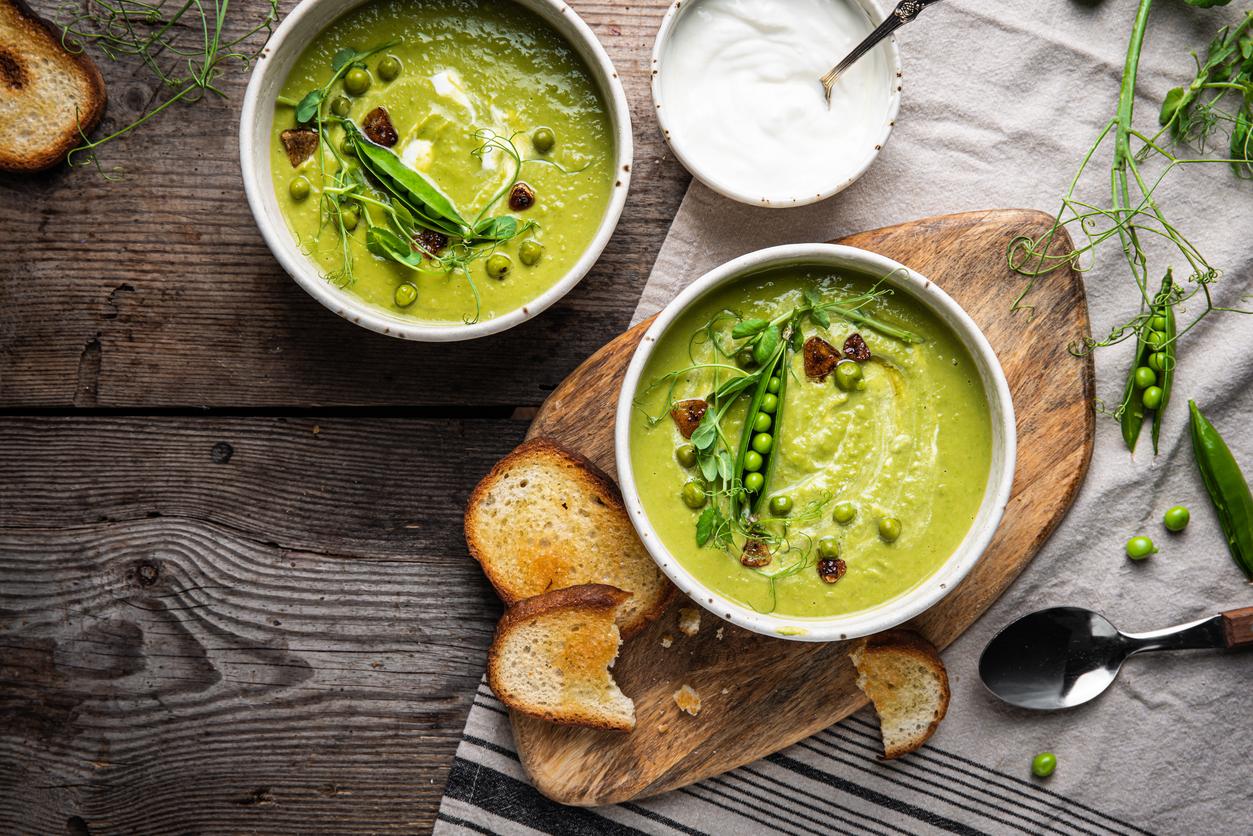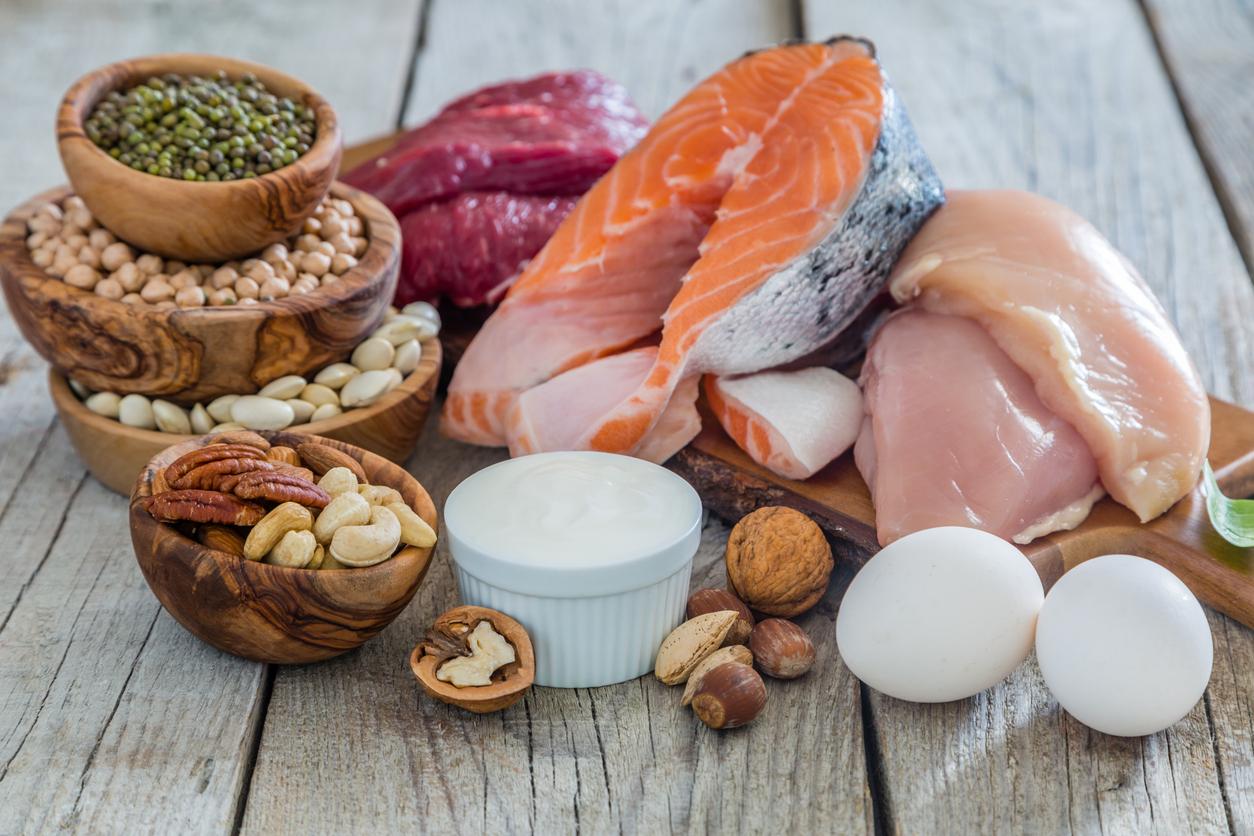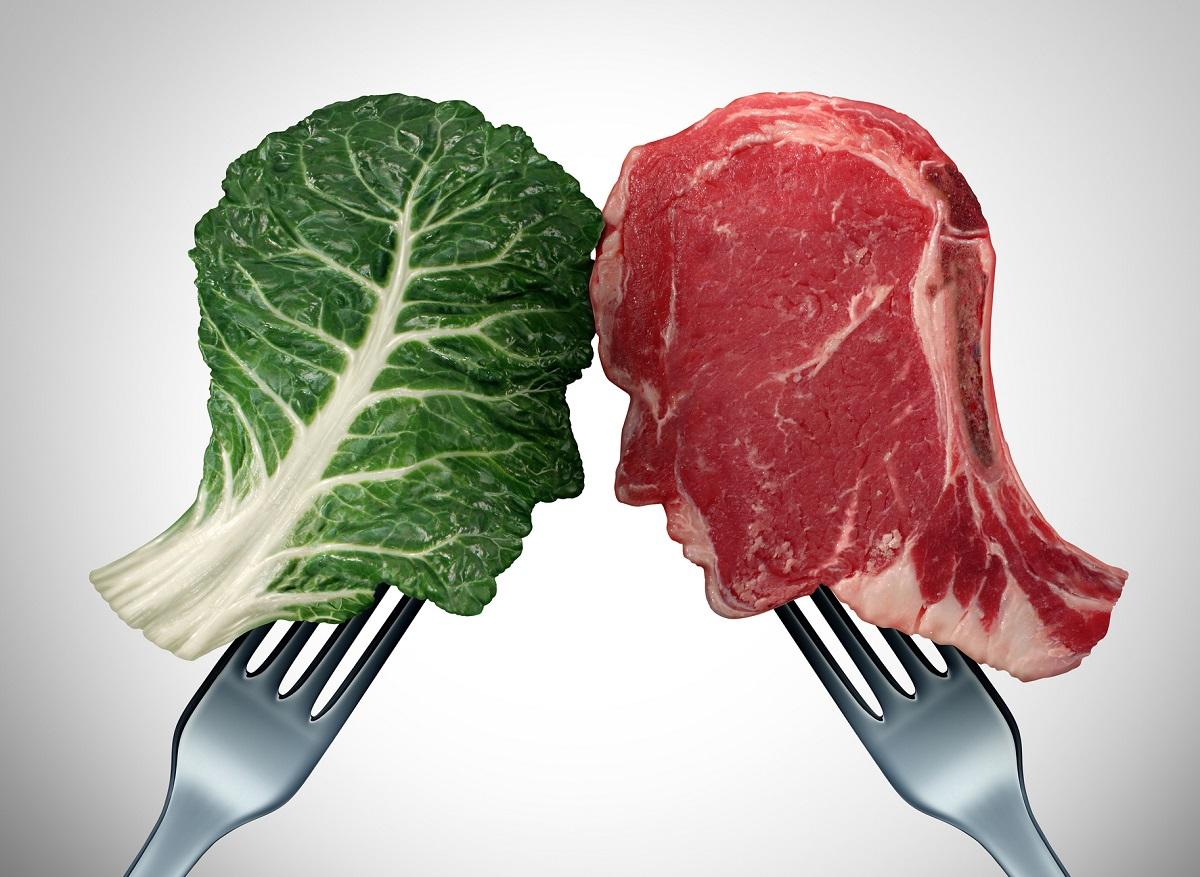What do you think of a 100% plant-based diet? A few days before the start of the January vegan challenge, we talk about it with Dr Laurence Froidevaux, specialist in plant nutrition.

Modeled on “dry January”, “veganuary” invites us to consume only foods of plant origin throughout the month of January. Exit meat (including fish), dairy products and eggs from the plate, and make way for legumes, whole grains, winter vegetables, fruits, algae… But what about the health of switching to such a diet? ? We talk about it with Dr Laurence Froidevauxco-author with chef Rémy Tranchida of the book My Plant-Based Cuisine by Éditions 41.
Why Doctor: How can we explain the French enthusiasm, for several years now, for foods of plant origin?
Dr Laurence Froidevaux: Plant-based eating is experiencing remarkable growth, and for good reason, it is full of benefits for our health! Contrary to what many people think, plant-based foods are real nutritional treasures. Nature offers us a rainbow of protective foods and this color palette is not just aesthetic – it reveals the presence of powerful antioxidants that protect our cells against aging and disease. Each fruit, vegetable, legume or seed provides its unique share of essential vitamins, minerals and phytonutrients. Such nutritional abundance constitutes a real shield against chronic diseases: the low content of saturated fats protects our heart, the antioxidants and phytonutrients fight the development of cancer cells, while the fibers and whole foods, naturally low in calories and with a low index blood sugar levels, help prevent diabetes and maintain optimal weight. Furthermore, its anti-inflammatory properties and its richness in plant proteins and carbohydrates make it an excellent option for athletes keen to optimize their performance.
As with any balanced diet, thoughtful planning is essential to cover all nutritional needs.
Can it be implemented at any age of life? Even among toddlers?
A well-planned plant-based diet can be healthy and nutritionally adequate at all stages of life, including babies and children. The largest health organizations in the world, including the USA, Canada, Australia, and the United Kingdom, which are up to date with the current scientific consensus, officially confirm this.
As with any balanced diet, thoughtful planning is essential to cover all nutritional needs. As part of a 100% plant-based diet, vitamin B12 supplementation is necessary, as this vitamin is not present in plants. It is important to note that livestock are supplemented with B12 themselves – so taking the supplement directly only simplifies the process. Furthermore, B12 supplementation is recommended for anyone over 50, regardless of their diet.
Plant proteins, consumed naturally throughout meals through a variety of foods, provide all the essential amino acids in adequate proportions.
How do you know that you have all the nutrients you need with such a diet?
As with any diet, a regular blood test allows you to evaluate and optimize your nutritional intake. Clinical experience shows that vitamin and mineral deficiencies do not spare anyone, including people following a traditional diet including meat and dairy products. Scientific data does not indicate any additional risk linked to a well-conducted plant-based diet. A healthy diet requires some thought, whether plant-based or not.
Some people recommend combining this cereal with another legume during meals… what is it really like on a daily basis?
No need to get bogged down in unnecessary complications. The outdated belief about the need to consistently combine certain foods (like rice and lentils) to obtain “complete” proteins was scientifically disproven decades ago, and yet it persists in people’s minds. Plant proteins, consumed naturally throughout meals through a variety of foods, provide all the essential amino acids in adequate proportions. Dietary diversity alone is enough to cover our needs.
For iron, deficiencies affect both vegans and omnivores.
Aside from vitamin B12, are there other deficiencies to watch out for?
As mentioned previously, a well-planned plant-based diet does not present any more risk of deficiencies than a traditional diet including meat.
However, here are the main nutritional points to take into account for an optimal plant-based diet:
-As mentioned previously, the vitamin B12 supplementation is essential in two cases, for people following a plant-based diet and for anyone over 50, regardless of their diet;
-There vitamin D deficiency is widespread in the general population, because its synthesis depends on exposure to the sun, today limited by our lifestyles. Given the risks associated with overexposure to the sun, supplementation is a good, prudent alternative.
-For irondeficiencies affect both vegans and omnivores. To optimize its absorption, it is wise to combine foods rich in iron (legumes, green vegetables) with sources of vitamin C. For example: add lemon juice to lentils, or combine chickpeas and peppers or squash.
–Calcium intake can be provided by legumes, cereals, tofu and seeds and nuts. A practical tip is to use tahini (sesame seed puree) as a source of fat in cooking preparations, sesame seeds being particularly rich in calcium.
-There omega-3 supplementation is also recommended. These essential fatty acids, present in fish, initially come from micro-algae. Opting for a supplement based on these micro-algae allows you to avoid exposure to marine pollutants while preserving aquatic ecosystems.
For other essential nutrients:
– One Brazil nut per day covers the nutritional needs selenium.
– Iodized salt easily ensures the intake of iodine.
– Cereals and legumes provide the zincwhose absorption is improved by cooking with garlic or onion.
Planning your meals in advance can help you avoid less healthy last-minute choices like frozen or takeout meals.
What would you say to people worried about losing the pleasure of sitting at the table while eating vegan every day?
A plant-based diet is far from monotonous! Plant-based cuisine invites experimentation and creativity. Each ingredient can be available in multiple preparations, offering an infinite variety of flavors and textures. Let’s take the example of chickpeas that can be prepared: in hummus for an aperitif, in a leek quiche for a comforting main course, in vegan cookie dough for a surprising dessert (raw or cooked, no danger with the plants), in flour for gluten-free preparations or even to imitate a delicious, cholesterol-free omelette!
What advice would you give to someone who wants to transition to a 100% plant-based diet?
Start slowly and incorporate plant-based options little by little. To increase your chances of success, first identify dishes you already eat that are naturally plant-based, such as a vegetable curry or squash soup. Then, choose your favorite recipes like mushroom risotto or a pasta dish, and try to adapt them into plant-based versions, especially those that you prepare often. By gradually increasing the proportion of plants in your diet, you will allow your digestive system to adapt to the increase in fiber, without discomfort.
Then get curious: try new plant-based recipes, like pesto gnocchi or a fruit smoothie, and if you and your family like them, incorporate them regularly until they become classics at home. Don’t hesitate to explore all the possibilities offered by plants, from vegetables to whole grains, including legumes and mushrooms, to vary textures and flavors.
Don’t forget fruit either, which can add delicious sweet touches, in the form of smoothies or compotes, desserts or simply as a snack, at any time of the day when you’re feeling a little hungry.
Finally, planning your meals in advance can help you avoid less healthy last-minute choices like frozen or takeout meals. With a little organization, you can easily integrate more plant-based recipes into your daily life.
Above all, stay curious, have fun and enjoy the many benefits of a complete plant-based diet!
















